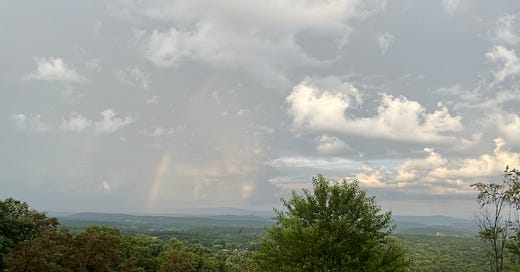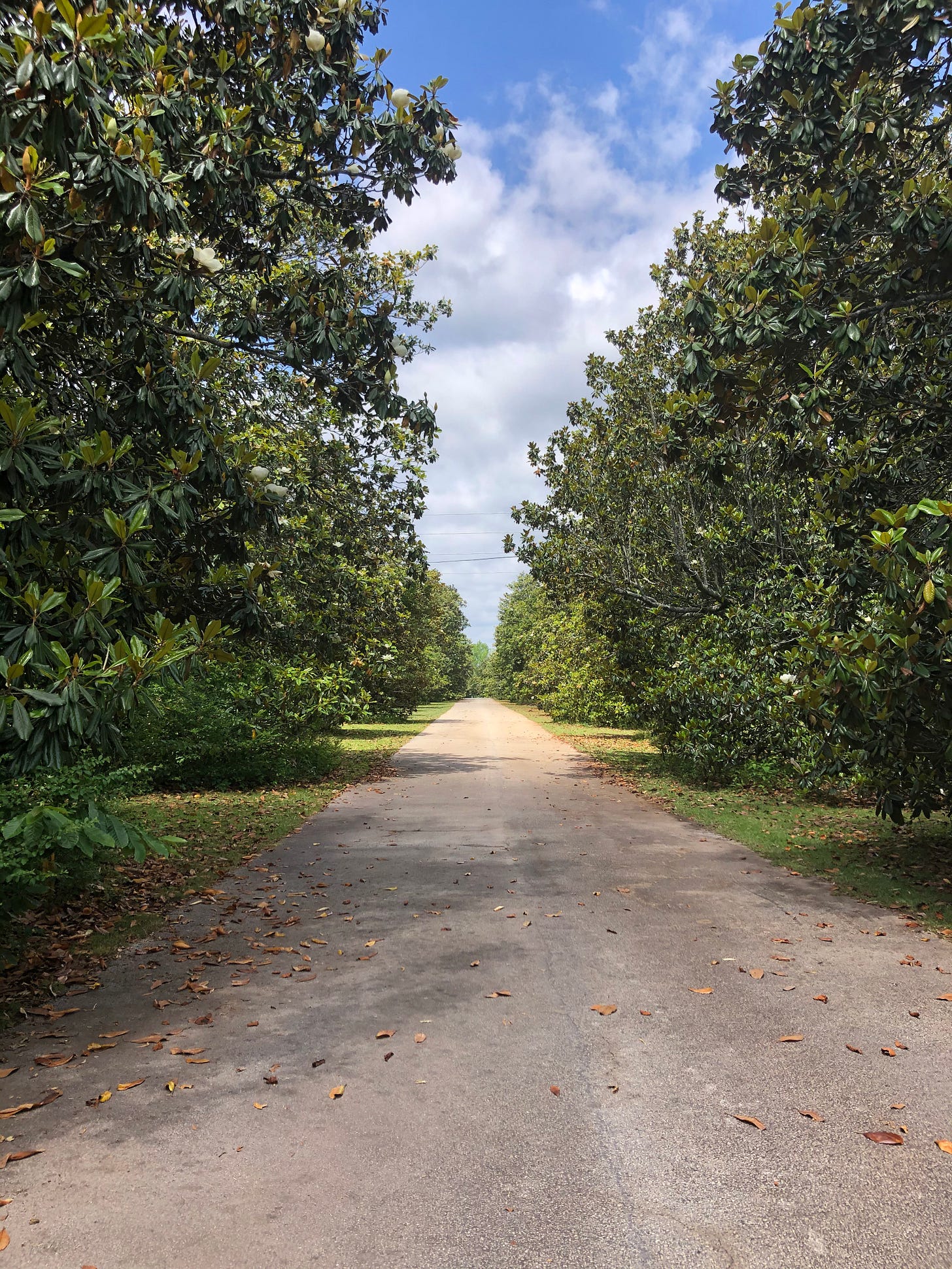Hi everyone, today I’d normally be sharing the Resistance Roundup, but I have a few things to say, and I wanted to share them with you here. Keep resisting.
This morning, my kids studied the Potawatomi language on their iPads. That may not be an important sentence to some of you, but typing that sentence makes me cry.
This morning, my 11 year old was listening to a podcast called Young and Indigenous. That may not seem like a big deal, but I teared up walking down the stairs to Indigenous voices speaking to my kid.
It fades in and out, the reality of being Indigenous. Some days, we are just living, not thinking about what it means to exist in a nation set up to destroy us. Some days it’s just laughter and swimming pools and beautiful, hard work.
I had a dream last night that I was hanging out with the cast of Reservation Dogs. We were at a speaking event, chatting with a listening audience about the power of being Indigenous. We were supporting each other, speaking our truth.
We are still here.
When I heard about the Supreme Courts’ affirmative action ruling, I thought about so many people—young Black students dreaming of their future, Asian students hoping for a new path, Latinx young people who want to pursue a path not known to them, and yes, Indigenous kids like mine who want to one day have the opportunity to attend an incredible school and work toward their future.
From the American Indian College Fund:
Although Native peoples adhere to the legal distinction of American Indians as being citizens of sovereign nations rather than a racial group, we acknowledge there is a duality in how American Indians in the United States are classified in practice, as both sovereign peoples and as a racial group.
With regard to the facts of our lives lived in the real world that show us that, in fact, we do not live in a colorblind world: Our histories and cultures are still being removed from curricula across the country. Students continue to face prohibitions from wearing regalia at graduation ceremonies. Native students are frequently excluded from accessing campus resources and rarely see themselves represented on college campuses.
With regard to the inequitable treatment of Native people under the law, we know ths harkens back to the Declaration of Independence, in which sovereign Indigenous nations were referred to as “merciless Indian savages.” These inequities can be traced throughout the history of our nation through volumes of Indian Law to present today.
This is not meant to discount the lived and legal struggles that other marginalized people have endured. Rather, this is to state the bottom line that American Indians and Alaska Natives (AIAN) benefitted from policies that provide them with equitable access to higher education—along with other groups and we understand the positive economic, mental, and physical health, and other outcomes an education confers on individuals, their families, and communities. We are committed to ensuring this progress continues.
Now, this is the hard part—the liminality of how we exist as Indigenous people in this nation is that we are always here but no one really notices.
We are the butt of jokes, we are barred from celebrating our cultures publicly, we are left out of surveys on a number of issues, and we are told to check boxes to get some sort of access in an America that doesn’t even understand our tribal sovereignty.
So when my kids get out their iPads and listen as Justin, the language coordinator for our tribe, teaches them the words their ancestors used, I feel alive.
It’s powwow season, the height of summer, and Indigenous people across the country are having ceremony, holding up their stories, songs, dances, experiences, and yes, resistance.
We are still present, even in a nation that wants us gone. We are still here, even as we know we won’t always be recognized or heard. You may remember that I’ve shared the Potawatomi word for America before, chemokmankik, loosely translating to land of the long knives or land of the butchering knives.
So every time the American government reminds us that we do not belong and we do not matter, I remember that word. I remember that even our ancestors knew the truth, and held on to themselves and their culture the best way they knew how. The land is our teacher, always. And we resist on this land against the systems put in place that work to destroy us but cannot.
I wrote in my book Native:
Native women have been through so much throughout history. We have lost our fathers and our brothers, our sisters and our mothers; we have faced abuse, rape, and murder and have held our families together. We have become social workers, water protec- tors, and community leaders; we have taken our work back to our people to support them, living in cities and outside them. We have held the fire when it has been most difficult.
Indigenous feminism flies in the face of everything I learned growing up by proclaim- ing that the bodies of Indigenous women cannot be overcome or controlled by systems of colonization, including the church. In this space, I learn what it means to be kwe, an Anishinaabe woman.
In my new book Living Resistance I wanted to focus on intergenerational resilience and healing over intergenerational trauma. I wanted to remember that it matters how we are healing as much as it matters that we tell the truth and remember the pain. My kids are healing. They are healing themselves and me and every ancestor watching. They are healing future generations with every word.
I write:
But I don’t want to focus only on our trauma. As someone who writes on colonization and white supremacy on a daily basis, I want to find other ways to engage with the world and society. I need good medicine that will help keep me grounded and steady for the journey ahead. As much as we need to be informed about the intergenerational trauma we carry, I want us to focus on the intergenerational healing we carry too.
I will have quiet days where the resistance realities sink into the background a little bit. And I will have days where I cry, remembering what it means to resist in every way.
Yesterday I planted more seeds in the wooden tiered container on the front porch. These little beings will wake up and grow soon, and I will cherish them with reciprocity, remembering that we must be here in belonging if we are to be here at all.
We are still here growing beside the seeds we plant and the children who resist, and the hordes of long knives cannot take that away.






As a Black woman who just recently discovered her Indigenous heritage I stand with you! 🙏🏽
This touched me. Thank you for writing it, Kaitlin 🩷